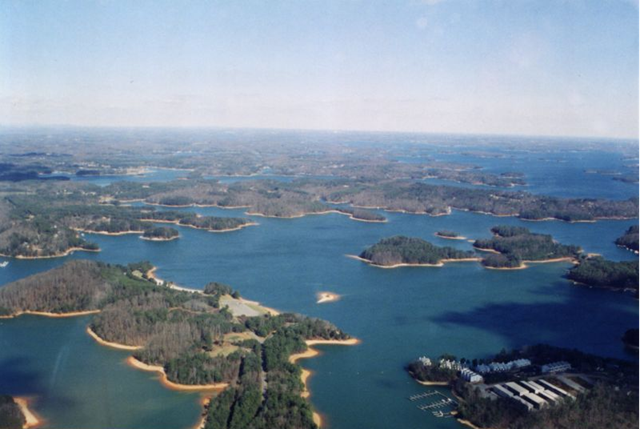Court hands big victory to Georgia in tri-state water war
By LAWRENCE HURLEY AND PAUL QUINLAN of Greenwire
29 June 2011 A federal appeals court handed Georgia an enormous victory in long-running, tri-state water litigation yesterday, overturning a decision by a federal judge that could have sharply curtailed the availability of water in Atlanta beginning next summer. The three-judge panel of the Atlanta-based 11th U.S. Circuit Court of Appeals ruled unanimously that the Army Corps of Engineers has authority to allocate additional water from Lake Lanier, a reservoir about 25 miles north of downtown Atlanta, to meet the increasing drinking water needs of the Atlanta metro area. The court gave the Army Corps a year to come up with a new plan for managing the lake. In an unsigned joint opinion (pdf), the court reversed the July 2009 ruling by Senior U.S. District Judge Paul Magnuson of the District of Minnesota, who was assigned to handle the multi-district litigation. Magnuson held that the Army Corps could not draw increasing amounts of water from Lake Lanier. Currently, the corps allocates more than 21 percent of Lake Lanier’s storage space to water supply. Magnuson gave Georgia, Alabama and Florida until July 2012 to figure out a solution or Atlanta would face water drastic cutbacks in how much water it could draw from the lake. The complex litigation involves numerous parties, including the states of Georgia, Alabama and Florida, in addition to the Army Corps. The battle has pitted the drinking water needs of the fast-growing and thirsty metro Atlanta region, on one end, against the oysters of Florida’s Apalachicola Bay, which lies downstream at the mouth of the Caloosahatchee River. […] Apalachicola Riverkeeper executive director Dan Tonsmeire said the region’s seafood and tourism industries depended on a sustained, adequate flow of freshwater from the river. During the last drought of 2007, 80 percent of the oyster beds disappeared from the bay and fisheries declined more than 60 percent — new lows from which they have never fully recovered. “Compare the ecosystem to a rubber band. You can stretch it out so far and take it to a certain point and it will rebound,” he said. “But at some point, you take it on past that, and the rubber band doesn’t come back.” […]
